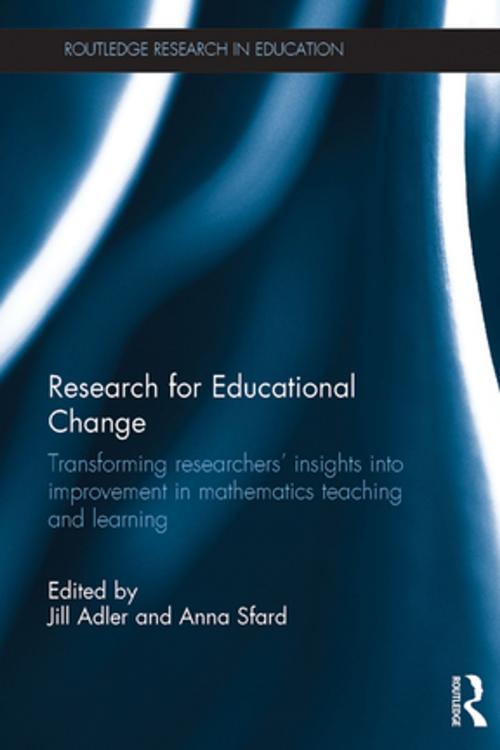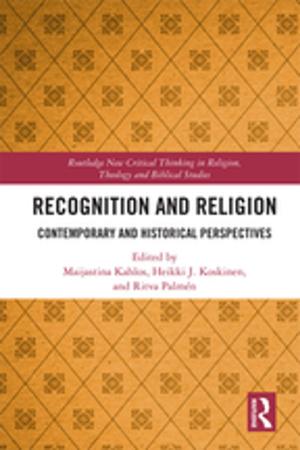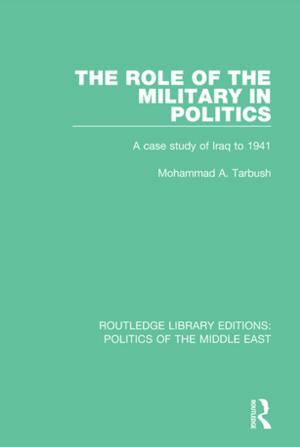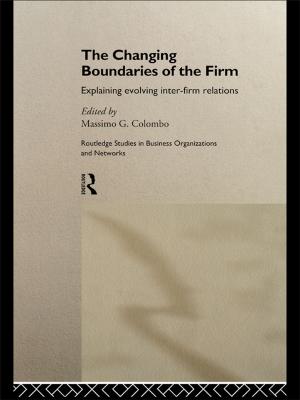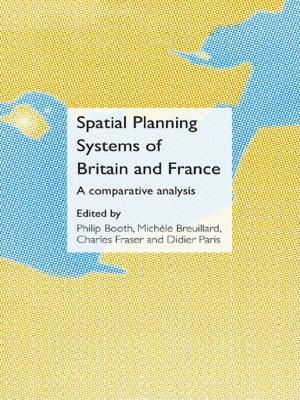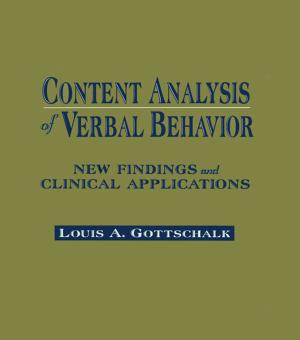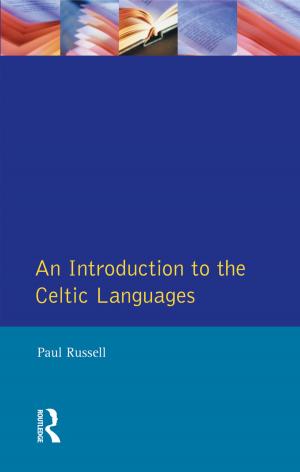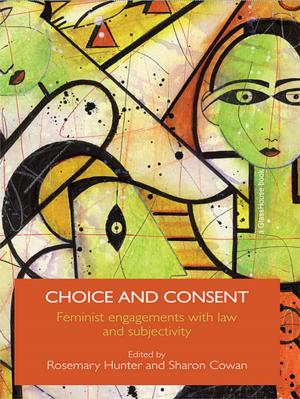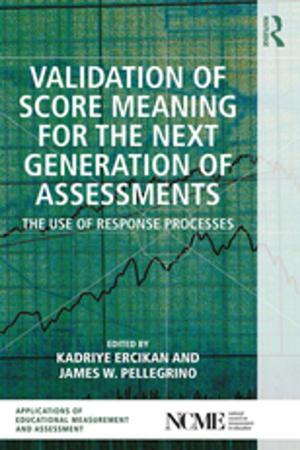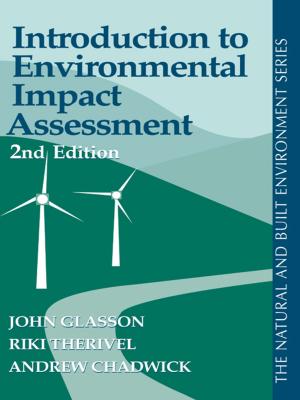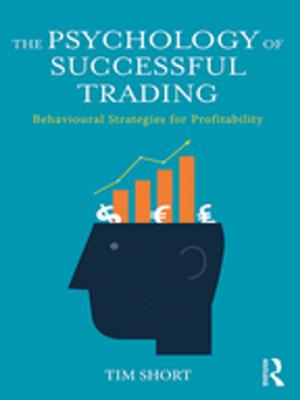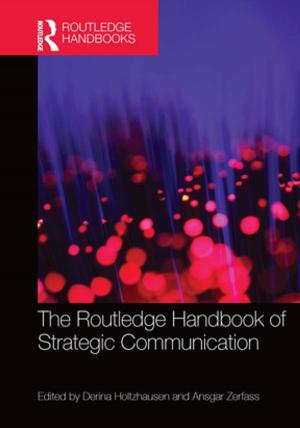Research for Educational Change
Transforming researchers' insights into improvement in mathematics teaching and learning
Nonfiction, Reference & Language, Education & Teaching| Author: | ISBN: | 9781317285397 | |
| Publisher: | Taylor and Francis | Publication: | June 17, 2016 |
| Imprint: | Routledge | Language: | English |
| Author: | |
| ISBN: | 9781317285397 |
| Publisher: | Taylor and Francis |
| Publication: | June 17, 2016 |
| Imprint: | Routledge |
| Language: | English |
Research for Educational Change presents ways in which educational research can fulfil its commitments to educational practice. Focussing its discussion within the context of mathematics education, it argues that while research-generated insights can have beneficial effects on learning and teaching, the question of how these effects are to be generated and sustained is far from evident. The question of how to turn research into educational improvement is discussed here in the context of learning and teaching hindered by poverty and social injustice.
In the first part of the book, four teams of researchers use different methodologies while analysing the same corpus of data, collected in a South African mathematics classroom. In the second part, each of these teams makes a specific proposal about what can be done and how so that its research-generated insights have a tangible, beneficial impact on what is happening in mathematical classrooms. Combining two discourses – that of researchers speaking to one another, and that of researchers communicating their insights to those responsible for educational practice – the book deals with the perenial question of communication between those who study educational processes and those who are directly responsible for teacher education, educational research and classroom practices.
This book will be key reading for postgraduates, researchers and academics in education and particularly in the areas of mathematics education, education research, teacher education and classroom practice. It will also appeal to teacher educators, practitioners and undergraduate students interested in educational research.
Research for Educational Change presents ways in which educational research can fulfil its commitments to educational practice. Focussing its discussion within the context of mathematics education, it argues that while research-generated insights can have beneficial effects on learning and teaching, the question of how these effects are to be generated and sustained is far from evident. The question of how to turn research into educational improvement is discussed here in the context of learning and teaching hindered by poverty and social injustice.
In the first part of the book, four teams of researchers use different methodologies while analysing the same corpus of data, collected in a South African mathematics classroom. In the second part, each of these teams makes a specific proposal about what can be done and how so that its research-generated insights have a tangible, beneficial impact on what is happening in mathematical classrooms. Combining two discourses – that of researchers speaking to one another, and that of researchers communicating their insights to those responsible for educational practice – the book deals with the perenial question of communication between those who study educational processes and those who are directly responsible for teacher education, educational research and classroom practices.
This book will be key reading for postgraduates, researchers and academics in education and particularly in the areas of mathematics education, education research, teacher education and classroom practice. It will also appeal to teacher educators, practitioners and undergraduate students interested in educational research.
